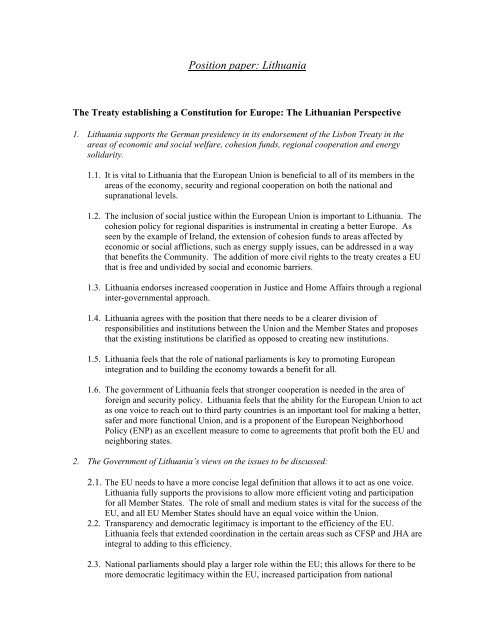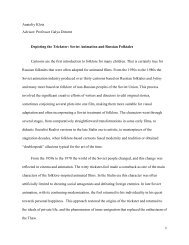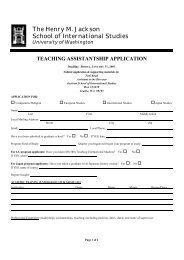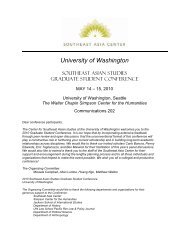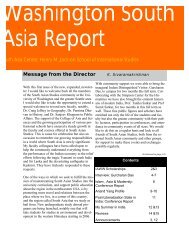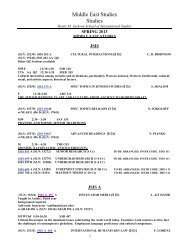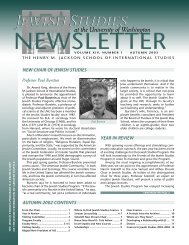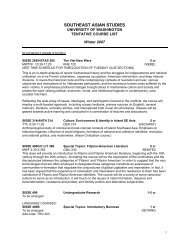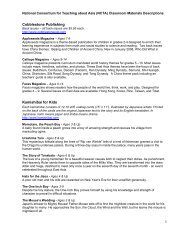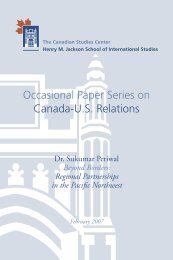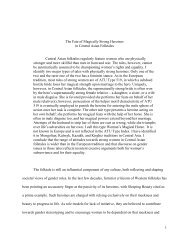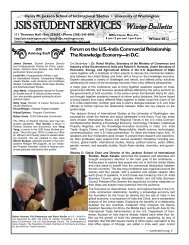Position paper: Lithuania
Position paper: Lithuania
Position paper: Lithuania
You also want an ePaper? Increase the reach of your titles
YUMPU automatically turns print PDFs into web optimized ePapers that Google loves.
<strong>Position</strong> <strong>paper</strong>: <strong>Lithuania</strong><br />
The Treaty establishing a Constitution for Europe: The <strong>Lithuania</strong>n Perspective<br />
1. <strong>Lithuania</strong> supports the German presidency in its endorsement of the Lisbon Treaty in the<br />
areas of economic and social welfare, cohesion funds, regional cooperation and energy<br />
solidarity.<br />
1.1. It is vital to <strong>Lithuania</strong> that the European Union is beneficial to all of its members in the<br />
areas of the economy, security and regional cooperation on both the national and<br />
supranational levels.<br />
1.2. The inclusion of social justice within the European Union is important to <strong>Lithuania</strong>. The<br />
cohesion policy for regional disparities is instrumental in creating a better Europe. As<br />
seen by the example of Ireland, the extension of cohesion funds to areas affected by<br />
economic or social afflictions, such as energy supply issues, can be addressed in a way<br />
that benefits the Community. The addition of more civil rights to the treaty creates a EU<br />
that is free and undivided by social and economic barriers.<br />
1.3. <strong>Lithuania</strong> endorses increased cooperation in Justice and Home Affairs through a regional<br />
inter-governmental approach.<br />
1.4. <strong>Lithuania</strong> agrees with the position that there needs to be a clearer division of<br />
responsibilities and institutions between the Union and the Member States and proposes<br />
that the existing institutions be clarified as opposed to creating new institutions.<br />
1.5. <strong>Lithuania</strong> feels that the role of national parliaments is key to promoting European<br />
integration and to building the economy towards a benefit for all.<br />
1.6. The government of <strong>Lithuania</strong> feels that stronger cooperation is needed in the area of<br />
foreign and security policy. <strong>Lithuania</strong> feels that the ability for the European Union to act<br />
as one voice to reach out to third party countries is an important tool for making a better,<br />
safer and more functional Union, and is a proponent of the European Neighborhood<br />
Policy (ENP) as an excellent measure to come to agreements that profit both the EU and<br />
neighboring states.<br />
2. The Government of <strong>Lithuania</strong>’s views on the issues to be discussed:<br />
2.1. The EU needs to have a more concise legal definition that allows it to act as one voice.<br />
<strong>Lithuania</strong> fully supports the provisions to allow more efficient voting and participation<br />
for all Member States. The role of small and medium states is vital for the success of the<br />
EU, and all EU Member States should have an equal voice within the Union.<br />
2.2. Transparency and democratic legitimacy is important to the efficiency of the EU.<br />
<strong>Lithuania</strong> feels that extended coordination in the certain areas such as CFSP and JHA are<br />
integral to adding to this efficiency.<br />
2.3. National parliaments should play a larger role within the EU; this allows for there to be<br />
more democratic legitimacy within the EU, increased participation from national
parliaments would also add to the ability to monitor the actions of the institutions of the<br />
EU. <strong>Lithuania</strong> feels strongly that the role of national parliaments is vital to the success<br />
of the EU.<br />
2.4. Voting procedures should reflect a more democratized EU that reflects equally the<br />
voices of every member state equally.<br />
2.5. <strong>Lithuania</strong> feels that there should be no option to opt out of areas of the treaty dealing<br />
with social justice, social disparities and human rights. The availability of an opt out<br />
option should be decided on the basis of need where implementing part of the treaty<br />
would cause greater disparities between regions within the EU.<br />
3. Proposals and Objectives from the Government of <strong>Lithuania</strong>:<br />
3.1. <strong>Lithuania</strong> endeavors that a provision be made towards achieving energy solidarity in the<br />
EU. It is important for the EU to be able to create ulterior sources for energy and to<br />
have reliance on more than one major supplier. There is a need to create a Baltic<br />
pipeline to supply the Member States in that area to ensure that any future shortages will<br />
not create large disparities between the regions. The creation of a policy of energy<br />
security for the EU to help Member States that could be hit by future energy shortages,<br />
such as the shortage caused by the Druzhba pipeline in 2006, is an important provision<br />
for the future of the EU.<br />
3.2. <strong>Lithuania</strong> encourages the terms of economic growth for the long term, the creation of<br />
more and better jobs, the promotion of social cohesion through extended use of cohesion<br />
funds to fix regional disparities, and the protection of rights for citizens of the EU.<br />
3.3. The government of <strong>Lithuania</strong> believes that forwarding the Community Method within<br />
the EU and using a solidified position to create a stronger ENP is necessary, both in the<br />
areas of common security and in promoting relations with other countries that lie close<br />
to the EU, with an emphasis on EU-Russian relations.<br />
3.4. The priorities for <strong>Lithuania</strong> concerning the Lisbon Treaty are economic and social<br />
development, – pertaining to individual welfare and foreign security objectives – the<br />
concentration of cohesion funds where they will be most beneficial (in the east)<br />
3.5. <strong>Lithuania</strong> proposes a more efficient system of qualified majority voting. The extended<br />
use of would aid in the overall efficiency and democracy of the EU. <strong>Lithuania</strong> also<br />
emphasizes the voices of all states are equally important on issues regarding the longterm<br />
benefit of all Member States.


